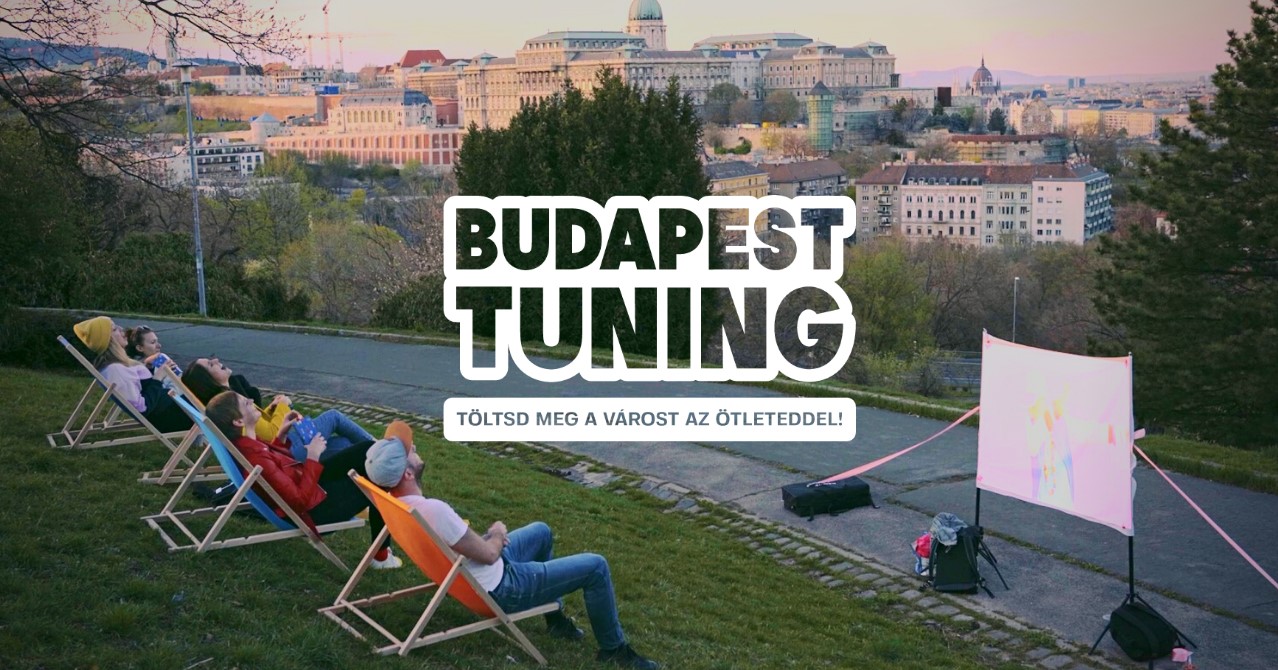IN CONVERSATION WITH CSABA FAIX, CEO OF BUDAPEST BRAND, KEYNOTE SPEAKER AT CITYDNA AUTUMN CONFERENCE IN VALENCIA: ‘BUILDING BLOCKS FOR DESTINATION POSITIVE’
Written in collaboration between City Destinations Alliance and Group NAO.

Picture Source: budapestbrand.hu
IN CONVERSATION WITH CSABA FAIX, CEO OF BUDAPEST BRAND, KEYNOTE SPEAKER AT CITYDNA AUTUMN CONFERENCE IN VALENCIA: ‘BUILDING BLOCKS FOR DESTINATION POSITIVE’
Written in collaboration between City Destinations Alliance and Group NAO.

In Budapest, local communities are taking cultural city programming into their own hands. Csaba Faix, CEO of Budapest Brand, shares how the programme Budapest Tuning invites community ideas to rewrite city cultural programming and urban development as we know it. Beyond offering financial backing, the initiative offers mentorship and support to bring community concepts to fruition. Budapest Tuning has become a catalyst for diverse ideas popping up across the city – ranging from music markets to graffiti jams and roller discos.
What inspired you to look at cultural programming differently?
My belief is that cultural programming shouldn’t just be for the high society, we need to take culture out from exclusive concert halls and put it in city squares.
Can you explain how the Budapest Tuning application process works?
The process comprises of multiple stages: an initial round of applications, shortlisting, a selection camp, and final decisions determining which projects will be implemented. It’s important we start the selection of project ideas with serious applicants and well-founded cost plans. Therefore, applicants need to pay 1% of the amount that they are applying for – and that 1% funds the jury’s honorarium and a joint workshop day (the ‘selection camp’). All applicants are invited to the selection camp (not just the selected applicants), as we are open to independently submitted project plans that can be connected and realised with other relevant projects. Here it’s possible that an idea not selected by the jury, can actually be realised in the framework of a larger project. All applicants will also have access to an online consultation and community workspace where they are able to consult with us and each other.
How do you support the selected projects during the implementation phase?
Budapest Brand gives the winning projects both a financial contribution required for project implementation and mentorship in complicated administrative procedures. This is about simplifying bureaucratic processes for communities which would typically be bottlenecks. Language is crucial – plain Hungarian, instead of convoluted bureaucratic phrases. It is really important to identify and simplify elements for the community, and to take over complicated aspects where you can. For example, we assist in the traffic licensing process, handling all the intricacies on behalf of the applicants. Overall, it is about making it easy for these communities to engage by simplifying instructions, guiding them through the process, detailing the necessary steps, and connecting them with other relevant initiatives.
As democratising cultural programming is very dependent on community engagement – how did you go about the outreach of Budapest Tuning?
We had to turn to the existing community in the city and identify main stakeholders and opinion leaders. We reached out to those already involved in various initiatives, inviting them into the process, understanding their needs and what they would benefit from Although we focused on those already active, we paid attention to not just working with the usual suspects, but also those who were deeply immersed in the scene. It was also crucial to hire people who were part of these communities and had their pulse on the city scene.
What were the key challenges you encountered when mobilising Budapest Tuning?
The main challenge is spreading the word and reaching diverse communities. It’s not about financing the same group repeatedly, but opening opportunities up for everyone. Also, advising participants to submit proposals that genuinely serve the community, rather than being self-serving, was another delicate task. We make sure the shortlist includes a range of events, even unexpected ones like a pilgrimage organised by a small church! The goal was to ensure the programme was not just for a specific demographic, but for the entire city.
What advice can you share with those looking to initiate similar projects?
Be patient, diversify your approach, and build a team with a variety of perspectives. Don’t rush the process, build it up organically. And remember, it’s not just about creating projects for the cool and young, it’s about making culture accessible to the whole city.